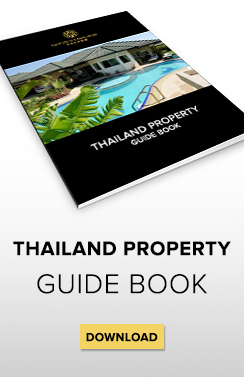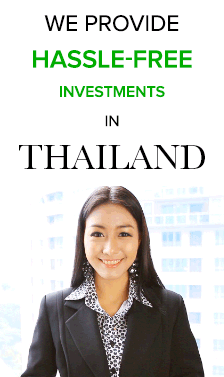Ho Chi Minh City ranked among top 5 real estate markets in Asia-Pacific
Ho Chi Minh City is in the top five of the Asia-Pacific region for real estate investment and development prospects, with annual returns expected to be up to 25 percent, according to a new report.
Emerging Trends in Real Estate Asia Pacific 2016, jointly published by the Urban Land Institute and consulting firm PwC, has ranked the city fifth for investment and fourth for development. Tokyo is at the top, followed by Sydney and Melbourne. Osaka and Ho Chi Minh City are neck and neck.
The Vietnamese city has emerged as one of the most promising markets in the region over the past two years, jumping from the 19th place in 2014 to one of the top five this year.
Foreign investors, mainly from Japan, South Korea and Singapore, are interested in the city’s property market on expectations of an annual return of between 20 and 25 percent, according to the report.
The report also attributes the city’s rise as an attractive destination to the government’s efforts to stabilize the local currency, control inflation, ease property lending and improve market access for foreigners.
Global investors prefer entering Vietnam’s real estate market through mergers and acquisitions. They are laying eyes on a wide range of projects, from beach resorts, serviced apartments, residential buildings to hotels, mostly in the three major cities Hanoi, Ho Chi Minh City and Da Nang.
For instance, Singapore-based investment fund Frasers Centrepoint Limited has acquired a 70 percent stake in a luxury residential apartment project from a local real estate developer. The $100-million project, namely G Home, covers a one-hectare area in downtown Ho Chi Minh City.
Source: VN Express
SEPO draws up five-year plan to improve thailand’s transport system
THE STATE Enterprise Policy Office (SEPO) will propose to Deputy Prime Minister Somkid Jatusripitak its five-year strategic plan for 11 transport-related state enterprises, aiming to increase annual transport investment by 10 per cent and reduce goods-transport costs to 6.9 per cent of gross domestic product.
Krichthep Simlee, acting deputy permanent secretary of the Transport Ministry, said SEPO had proposed to the ministry a strategic plan running from 2017 to 2021. It involves 11 state enterprises under the ministry and complies with the national five-year state-enterprise strategic plan.
Under the SEPO plan, the first strategy calls for raising the capability of Thailand’s transportation services to international levels and more efficient supervision and oversight to reduce accidents.
Initially, the Transport Ministry has a policy to reduce the number of fatal road accidents to 4.07 per million kilometres of travel by 2021 and the number of air-freight accidents from six in 2015 to none.
The second strategy involves investment in transport infrastructure to enhance the country’s competitiveness and economic stability with sustainability, and develop technology and information technology for more efficiency. SEPO has set a target for state enterprises’ investment in the transportation system to expand by at least 10 per cent per year. Goods-transport costs are targeted to drop from 7.4 per cent of GDP in 2015 to 6.9 per cent.
The transport of goods by rail is targeted to rise to at least 4 per cent of the total from last year’s 1.4 per cent, while water transport of goods is required to increase to at least 15 per cent from 11.44 per cent.The third strategy involves state enterprises’ capability to generate income from their core and non-core businesses, while reducing the losses that some have suffered due to too-high expenses for staff and inefficient operations.
The fourth strategy is to increase governance and good management, and the fifth aims at innovation and technological improvement for the transportation system.Krichthep said the Transport Ministry would send SEPO its comments and additional information on the strategic plan tomorrow (Dec 21) and propose it to Somkid on December 23 Friday before forwarding it to the State Enterprise Policy Committee chaired by Prime Minister Prayut Chan-o-cha next month.
The strategic plans of each state enterprise in the transportation field will be drawn up this month and in January for the committee’s review in March.
Source:The Nation
World Bank: Thailand’s Economy to Grow at 3.2 Percent in 2017
Thailand’s economy is expected to grow at 3.1 percent in 2016 and 3.2 percent in 2017, up from 2.8 percent last year, according to the 2016 Thailand Economic Monitor released on December 19 by the World Bank.
The key drivers of growth remain private consumption and public investments, such as the dual rail track and rail upgrading projects, the report says. Tourism growth has been strong in 2016, with the number of tourist arrivals, mostly from China, increasing by 13.1 percent in the third quarter.
In the fourth quarter, a temporary slowdown and the postponement of economic activities during the period of mourning after the passing of His Majesty King Bhumibol Adulyadej in October are expected to be offset in part by holiday tax breaks on shopping and domestic tourism at the end of the year.
“To remain competitive, Thailand has to embark on extensive reform of the economy to lay down a future for the country in areas such as infrastructure and advanced manufacturing,” said Kobsak Pootrakool, Vice Minister for the Office of the Prime Minister. “At the same time, ensuring that the grassroots can reap the benefits of development.”
As the aging of Thailand’s working-age population begins to affect its economy in the next five years, it will be increasingly important for Thailand to harness new engines of growth, in particular the service sector, to take the country from upper-middle to high-income levels, according to the report.
The service sector is 30 percent less productive than manufacturing in Thailand, according to the new Thailand Economic Monitor. Services account for 50 percent of gross domestic product and employ 40 percent of the workforce. In comparison, the manufacturing sector employs 15 percent of the workforce and produces as much as 35 percent of GDP.
“The combination of private sector initiatives and government support has led to successes in the service sector in many ASEAN countries,” said Kiatipong Ariyapruchya, World Bank Senior Economist for Thailand. “Thailand’s continued commitment to structural reforms can unleash the potential of the service sector and lift Thailand’s long-term growth path to above 4 percent.”
Thailand has generally more restricted service sector markets than its peers in the Association of Southeast Asian Nations. Some services are more protected from foreign and domestic competition, such as education and health facilities, which are required to be majority Thai-owned.
The World Bank report notes that liberalizing, or opening up, professional services can help increase efficiency, productivity, and quality in the service sector, for the benefit of Thai consumers. Thailand can strengthen its service sector by providing a supportive regulatory environment for doing business, fostering competition and deepening trade integration with the ASEAN Economic Community.
Source:finchannel.com
Rights groups welcome order to shut Thailand gold mine
Human rights groups on Wednesday welcomed a decision by Thailand to close the country’s only active gold mine by the end of the year as the mine’s operator said it had laid off the employees.Thailand’s ruling junta on Tuesday said it is suspending all gold mining operations in the country from Jan. 1 “due to its impact on locals and the environment.” The junta invoked Article 44 of the interim constitution which makes any action it takes final.
No new licenses for mining would be issued, it said.In May, Thailand said it would shutter the country’s only gold mine after the government said environmental concerns outweighed the economic benefits of the Chatree mine, located 280 km (174 miles) north of the capital Bangkok.
A military government investigation team in January 2015 said more than 300 people tested positive for arsenic and manganese at Chatree, which is run by Akara Resources Public Company Limited, a subsidiary of Australia’s Kingsgate Consolidated Ltd .
Fortify Rights, a Bangkok-based campaign group, welcomed the decision to shutter the mine.”The implementation of this order should focus on the rehabilitation of health and environment impacts linked to gold mining operations,” said Sutharee Wannasiri, a Thailand human rights specialist at Fortify Rights.
Akara Resources produced and exported 4 tonnes (4000 kg) of gold in 2015. Its license was due to expire on Dec. 31.The company was at the centre of protests by locals who said that mining activities poisoned residents, their water supply and crops.
In a statement released on Wednesday Kingsgate Chief Executive Officer Greg Foulis acknowledged the junta order and said the company “has never damaged environment or the health of the villagers.”
All Akara employees have received termination letters and company compensation packages, he said.
Source:Reuters
Thailand Resort Property Expo 2016
In collaboration with Sansiri, Golden Emperor is hosting a “Thailand Resort Property Expo 2016″ and presented 10 of Sansiri’s highlighted holiday homes across five of Thailand’s top destination with stunning beaches and picturesque mountain areas, includes Pattaya, Phuket, Khao Yai, Hua Hin and Chiang Mai. Our clients in Hong Kong had special offer during this event, and attracting over 350 customers attended over the weekend.

Above: Over 350 investors attended the weekend exhibition.

Above: Terence Chan, Director of Golden Emperor, provided a presentation on the holiday homes across five of Thailand’s top destination.

Above: Bangkok Hospital is offering a promotion for buyers at the event.

Above: Our clients in Hong Kong had special offer during this event.














